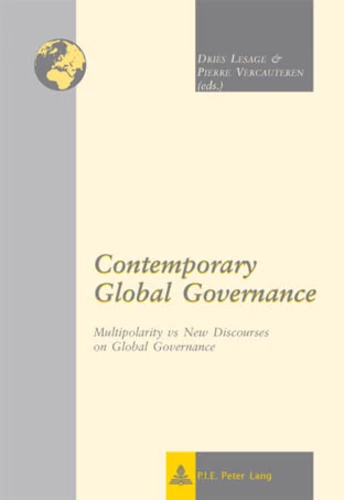Contemporary Global Governance. Multipolarity vs New Discourses on Global Governance
Par : ,Formats :
- Paiement en ligne :
- Livraison à domicile ou en point Mondial Relay indisponible
- Retrait Click and Collect en magasin gratuit
- Nombre de pages262
- PrésentationBroché
- Poids0.362 kg
- Dimensions22,0 cm × 15,0 cm × 1,4 cm
- ISBN978-90-5201-564-4
- EAN9789052015644
- Date de parution16/07/2007
- CollectionPLG.HUMANITIES
- ÉditeurPeter Lang AG
Résumé
This book explores two dimensions of contemporary global governance. The first part looks at the relationship between multipolarity and global governance. Thus the position of major players in global governance – namely China, Russia, the Trilateral Dialogue Forum of India, Brazil and South Africa (IBSA), Japan and the EU – is examined. The second part takes a look at particular discourses that inform the debate about global governance.
In this context, the book investigates issues such as the relationship between global governance and democracy, global governance and security thinking, and the way international institutions influence national policy. This volume builds on research activities within the network REGIMEN (Research Network on International Governance, Globalization and the Transformation of the State).
In this context, the book investigates issues such as the relationship between global governance and democracy, global governance and security thinking, and the way international institutions influence national policy. This volume builds on research activities within the network REGIMEN (Research Network on International Governance, Globalization and the Transformation of the State).
This book explores two dimensions of contemporary global governance. The first part looks at the relationship between multipolarity and global governance. Thus the position of major players in global governance – namely China, Russia, the Trilateral Dialogue Forum of India, Brazil and South Africa (IBSA), Japan and the EU – is examined. The second part takes a look at particular discourses that inform the debate about global governance.
In this context, the book investigates issues such as the relationship between global governance and democracy, global governance and security thinking, and the way international institutions influence national policy. This volume builds on research activities within the network REGIMEN (Research Network on International Governance, Globalization and the Transformation of the State).
In this context, the book investigates issues such as the relationship between global governance and democracy, global governance and security thinking, and the way international institutions influence national policy. This volume builds on research activities within the network REGIMEN (Research Network on International Governance, Globalization and the Transformation of the State).

